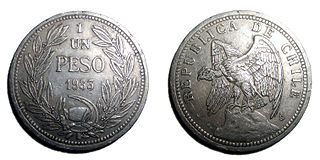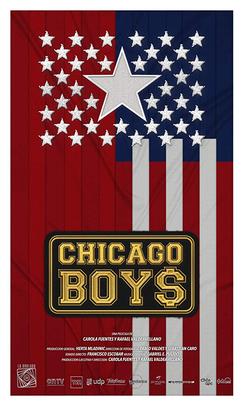
Milton Friedman was an American economist and statistician who received the 1976 Nobel Memorial Prize in Economic Sciences for his research on consumption analysis, monetary history and theory and the complexity of stabilization policy. With George Stigler, Friedman was among the intellectual leaders of the Chicago school of economics, a neoclassical school of economic thought associated with the work of the faculty at the University of Chicago that rejected Keynesianism in favor of monetarism until the mid-1970s, when it turned to new classical macroeconomics heavily based on the concept of rational expectations. Several students, young professors and academics who were recruited or mentored by Friedman at Chicago went on to become leading economists, including Gary Becker, Robert Fogel, and Robert Lucas Jr.

Monetarism is a school of thought in monetary economics that emphasizes the role of policy-makers in controlling the amount of money in circulation. It gained prominence in the 1970s, but was mostly abandoned as a practical guidance to monetary policy during the following decade because the strategy was found to not work very well in practice. Instead, inflation targeting through movements of the official interest rate became the dominant monetary policy strategy.
Neoliberalism, also neo-liberalism, is a term used to signify the late-20th century political reappearance of 19th-century ideas associated with free-market capitalism, which had fallen into decline following the Second World War. The term has multiple, competing definitions, and is often used pejoratively. In scholarly use, the term is frequently undefined or used to characterize a vast variety of phenomena.

The "Miracle of Chile" was a term used by economist Milton Friedman to describe the reorientation of the Chilean economy in the 1980s and the effects of the economic policies applied by a large group of Chilean economists who collectively came to be known as the Chicago Boys, having studied at the University of Chicago where Friedman taught. He said the "Chilean economy did very well, but more importantly, in the end the central government, the military junta, was replaced by a democratic society. So the really important thing about the Chilean business is that free markets did work their way in bringing about a free society." The junta to which Friedman refers was a military government that came to power in a 1973 coup d'état, which came to an end in 1990 after a democratic 1988 plebiscite removed Augusto Pinochet from the presidency.
The Chicago school of economics is a neoclassical school of economic thought associated with the work of the faculty at the University of Chicago, some of whom have constructed and popularized its principles. Milton Friedman, and George Stigler are considered the leading scholars of the Chicago school.

An authoritarian military dictatorship ruled Chile for seventeen years, between 11 September 1973 and 11 March 1990. The dictatorship was established after the democratically elected socialist government of Salvador Allende was overthrown in a coup d'état backed by the United States on 11 September 1973. During this time, the country was ruled by a military junta headed by General Augusto Pinochet. The military used the breakdown of democracy and the economic crisis that took place during Allende's presidency to justify its seizure of power. The dictatorship presented its mission as a "national reconstruction". The coup was the result of multiple forces, including pressure from conservative groups, certain political parties, union strikes and other domestic unrest, as well as international factors.
Arnold Carl Harberger is an American economist. His approach to the teaching and practice of economics is to emphasize the use of analytical tools that are directly applicable to real-world issues. His influence on academic economics is reflected in part by the widespread use of the term "Harberger triangle" to refer to the standard graphical depiction of the efficiency cost of distortions of competitive equilibrium. His influence on the practice of economic policy is manifested by the high positions attained by his followers in national agencies such as central banks and ministries of finance, and in international agencies such as the World Bank.

The economy of Chile has shifted substantially over time from the heterogeneous economies of the diverse indigenous peoples to an early husbandry-oriented economy and finally to one of raw material export and a large service sector. Chile's recent economic history has been the focus of an extensive debate, as it pioneered neoliberal economic policies.

Michael Kast Rist, commonly known as Miguel Kast, was a Chilean economist of the Chicago Boys group. He served as Minister of State and President of the Central Bank under the dictatorship of Augusto Pinochet. In his youth, he was a member of the Christian Democratic Party.

José De Gregorio Rebeco is a Chilean economist, academic, researcher, consultant and politician. He has been the Governor of the Central Bank of Chile, Minister of the Economy, Mining and Energy during the administration of Ricardo Lagos and is currently the Dean of the School of Economics and Business of the Universidad de Chile. He is also a nonresident Senior Fellow at the Peterson Institute for International Economics.

Sebastián Edwards a member of the Edwards family is a Chilean economist, professor, speaker, and consultant. He is currently the Henry Ford II Professor of International Business Economics at the UCLA Anderson School of Management at the University of California, Los Angeles (UCLA). From 1993 until April 1996, he was the Chief Economist for the Latin America and Caribbean Region of the World Bank. He is also a research associate of the National Bureau of Economic Research (NBER), a member of the advisory board of Transnational Research Corporation and co-chairman of the Inter American Seminar on Economics (IASE). He is the Past President of the Latin American and Caribbean Economic Association (LACEA), an international professional association of economists with academic interests in Latin America and the Caribbean region. He was a member of the Scientific Advisory Council of the Kiel Institute of World Economics, Kiel-Germany. He is a member of California Governor Arnold Schwarzenegger's Council of Economic Advisors.

Hernán Alberto Büchi Buc is a Chilean economist who served as minister of finance of the Pinochet government. In 1989 he ran unsuccessfully for president with support of Chilean right-wing parties.

Juan Andrés Fontaine Talavera is an economist who was Chilean Minister for the Economy, Development, and Reconstruction under President Sebastián Piñera.
After World War II, many countries adopted policies of economic liberalization in order to stimulate their economies.

The Crisis of 1982 was a major economic crisis suffered in Chile during the military government of Chile (1973–1990). Chile's GDP fell 14.3%, and unemployment rose to 23.7%.

El ladrillo is a study considered the base of many of the economic policies followed by the military dictatorship that ruled Chile from 1973 to 1990. El ladrillo was finished just a few weeks before the 1973 Chilean coup d'etat. This study became known to the public in 1992 when it was published by the Centro de Estudios Públicos, a think tank associated with the Chicago Boys, and with a prologue written by economist Sergio de Castro. Emilio Sanfuentes was the coordinator of the team of economists who researched the different topics.

Sergio de Castro Spikula is a Chilean economist who served the military junta headed by Augusto Pinochet as economy and finance minister. De Castro was one of the Chicago Boys, trained in economics at the University of Chicago. Sergio de Castro is one of the authors of the influential text known as El ladrillo, writing its prologue.
César Alejandro Vásquez Bazán is an economist, graduate professor and Peruvian politician.

Chicago Boys is a 2015 Chilean documentary film written and directed by Carola Fuentes & Rafael Valdeavellano. The film tells the story of the Chicago Boys, a group of Chilean economists trained at the Catholic University of Chile who, after conducting graduate studies at the University of Chicago under professor Arnold Harberger, return to their country and, after Augusto Pinochet's military dictatorship (1973–1990), become the main ideologues of the neoliberal economic model in Chile.
Chile joined the International Monetary Fund (IMF) and International Bank for Reconstruction and Development (IBRD), the founding branch of the World Bank Group, on December 31, 1945.













